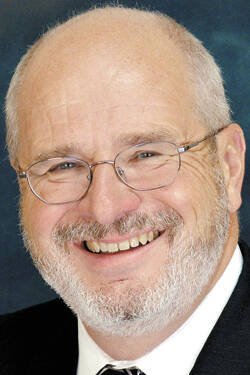The two candidates for Georgia’s U.S. Senate seat don’t have much good to say about each other.
The incumbent, Democrat Raphael Warnock, says his opponent, Republican Herschel Walker, lies about everything. Warnock says Walker has told fibs about a fictitious career in law enforcement, about his education and about the size of his company, among other things.
Walker has questioned the faith of Warnock, who is an ordained minister—and is, in fact, the pastor of Atlanta’s famed Ebenezer Baptist, the home church of the late Rev. Martin Luther King Jr. Walker has accused Warnock of misusing church funds and treating tenants in a property owned by the church’s foundation with unchristian harshness.
Both men also have made each other’s divorces issues in the campaign.
It should be noted that both Warnock and Walker deny at least most of each other’s charges.
But that really doesn’t matter.
The vitriol and slurs have flowed so fast that corrections and denials don’t stand a chance of stemming the tide. Whoever wins the Dec. 6 runoff election will hold up a victor’s trophy caked with so much mud a river at flood stage wouldn’t be able to wash it clean.
All this nastiness might have been somewhat understandable prior to the Nov. 8 general election.
Before then, the Georgia Senate race was one of the highest-stakes contests around. It was presumed the winner of the Warnock-Walker clash would determine which party would control the Senate, along with the power to advance or block judicial appointments and other instruments of governmental authority.
That question, though, now is settled.
Democratic victories in the Pennsylvania, Arizona and Nevada Senate races made certain that the party of Jefferson and Jackson would call the shots in the upper chamber. The outcome of the Warnock-Walker race can decide whether U.S. Sen. Joe Manchin, D-West Virginia, will continue to be the swing vote in—and thus the unofficial king of—the Senate, but it won’t fundamentally alter the balance of power.
Why then has the campaign in Georgia continued to be so mean-spirited?
It would be nice to be able to place all the blame on the shoulders of the candidates. Doing so, though, would be neither fair nor accurate.
Most likely, neither Warnock nor Walker wakes up every morning joyful at the prospect of saying and doing things that in any other circumstance would make him feel shame. The guess here is that neither man much enjoys the process of character assassination.
But they both also want to win.
One of the defining realities of our time is that negative campaigning works—and it works particularly well in highly competitive and high-stakes races such as the Georgia tilt. The candidate who refuses to engage in the work of tearing down his or her opponent’s reputation almost inevitably will end up on the losing end.
There are reasons for this.
One is that the U.S. Supreme Court’s decisions releasing so-called soft or dark money in political campaigns unleased a snarling, malicious beast. Because the ads this dark money pays for can’t endorse candidates, they must attack opponents, often savagely.
This has at least two effects.
The first is that the process is corrupted in fundamental ways. When the bulk of the money spent on a political race must be focused on denigrating someone, the tone of the contest is fundamentally altered and public confidence in both the process and the outcome is undermined, often fatally.
The second is that it allows the candidates themselves to evade any sense of responsibility for the ugliness they inspire.
But it’s also not fair to hold the process alone accountable for the pervading maliciousness in our politics.
If advertising alone worked, new Coke still would be on the shelves. Advertising can’t persuade people to buy a product they don’t want.
Negative campaigning works because many of us—too many, in fact—define ourselves less by what we’re for than what we’re against. Too often, we vote not to advance a cause but to condemn someone else’s supposed agenda.
That’s unfortunate, because it means even the winners of our elections emerge as victors without the mandates necessary for them to get anything substantial done.
And the strife that plagues us continues.
The two candidates in Georgia have little good to say about each other.
That doesn’t say much good about them.
Or us.
John Krull is director of Franklin College’s Pulliam School of Journalism and publisher of TheStatehouseFile.com, a news website powered by Franklin College journalism students. The views expressed are those of the author only and should not be attributed to Franklin College. Send comments to [email protected].




